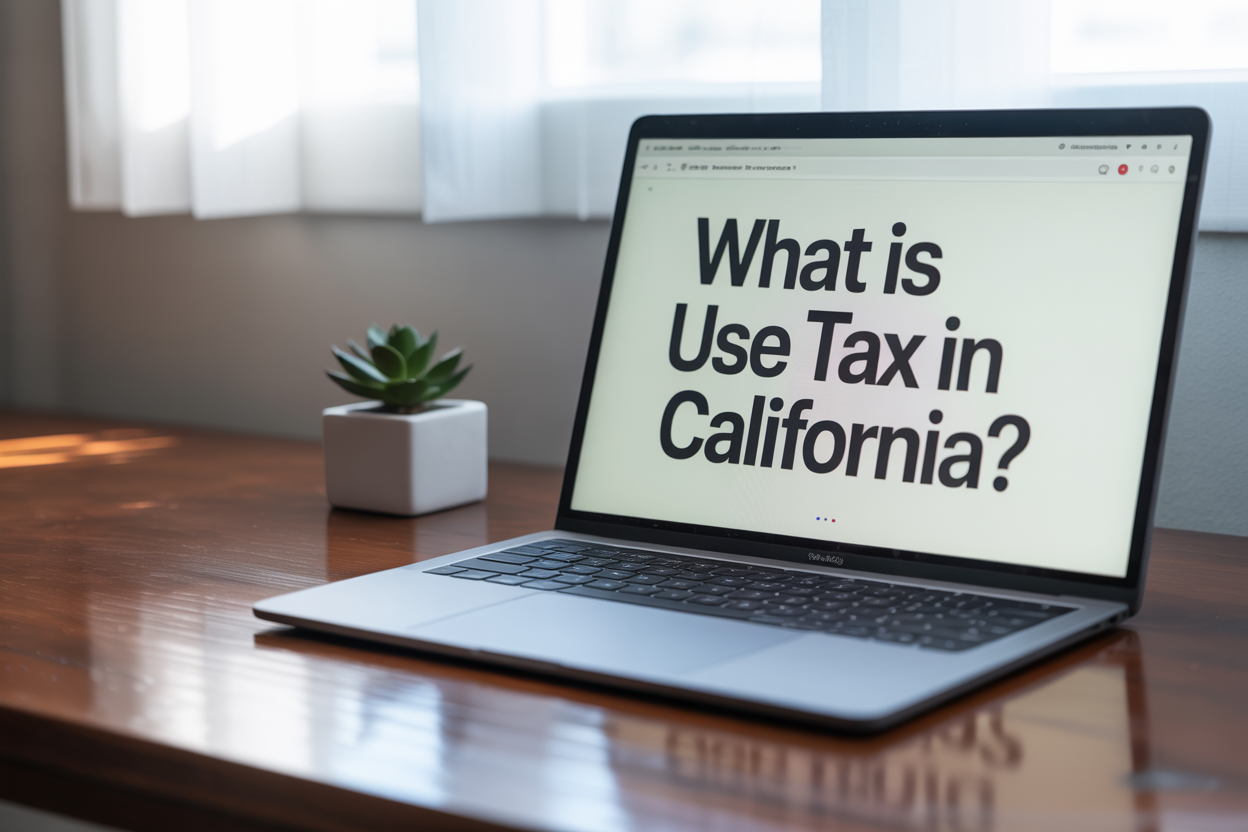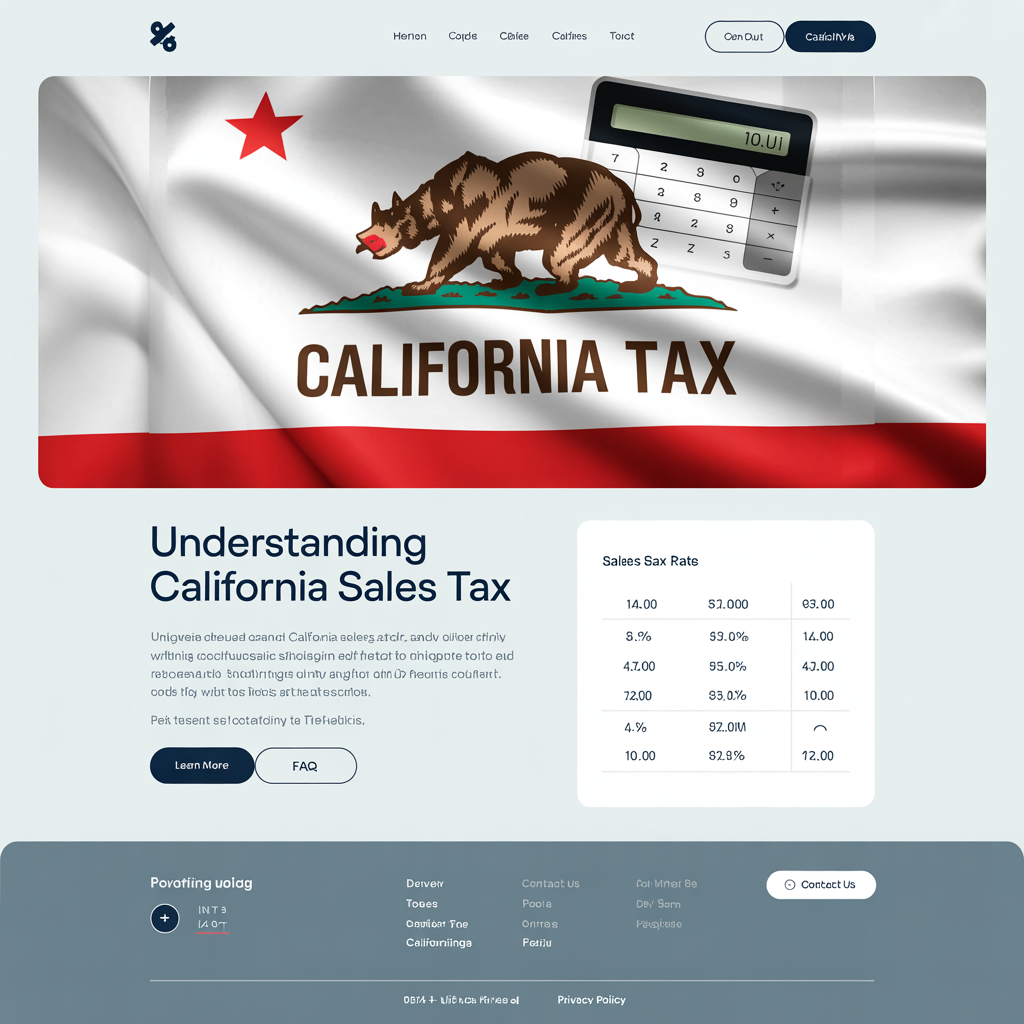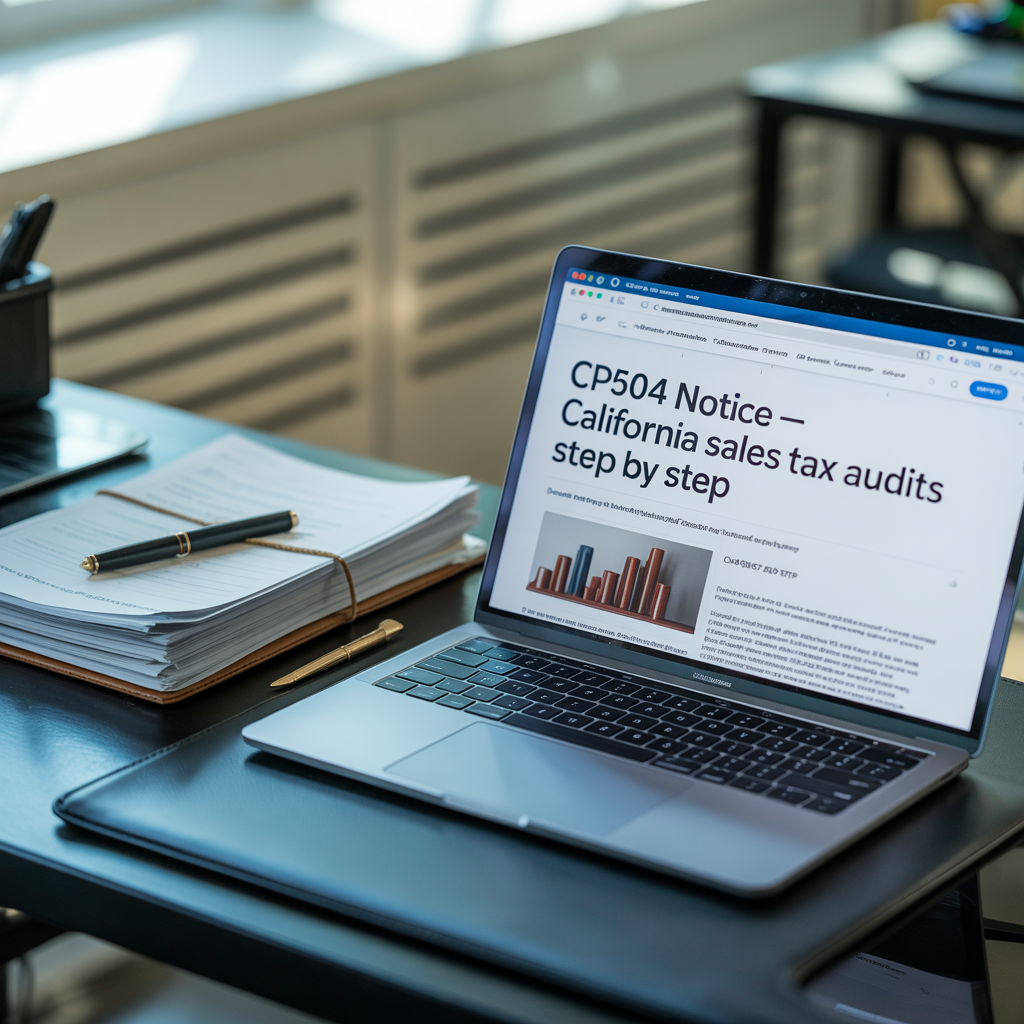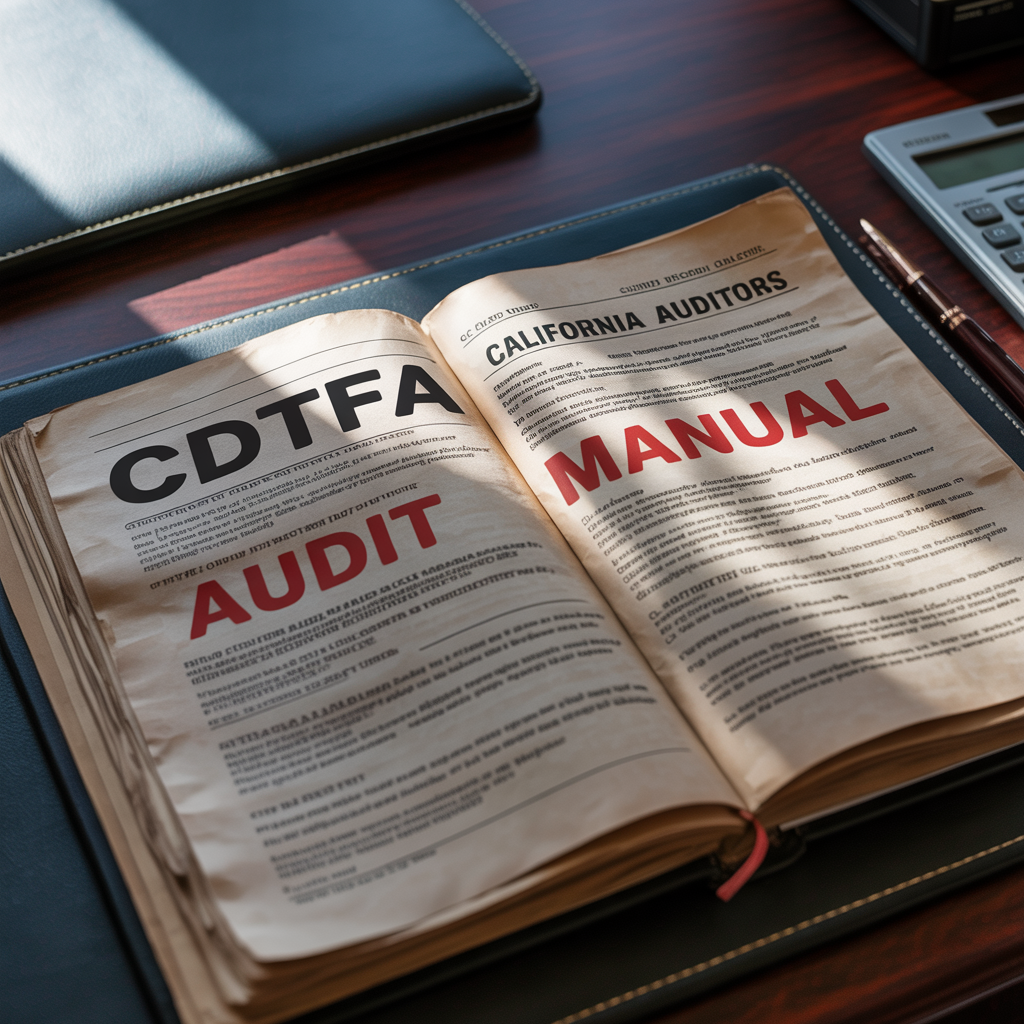What Is California Sales Tax? (Explained for Business Owners)
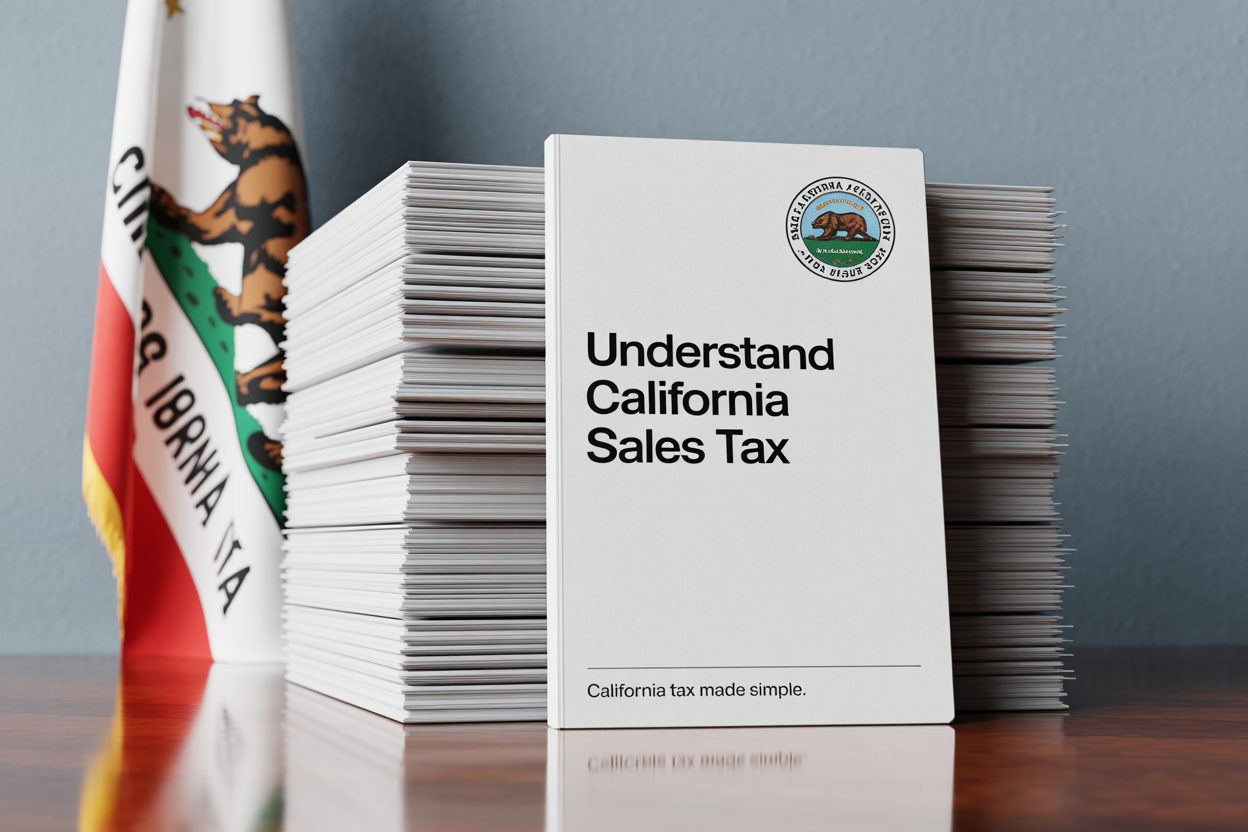
If you're doing business in California, you’ve probably collected sales tax — but do you actually know how it works, when it applies, and what the CDTFA expects from you?
California’s sales tax rules are more complex than most states. One mistake can trigger a full-scale CDTFA sales tax audit process — and if you’re caught under-collecting or misclassifying sales, you could owe tens of thousands in back taxes, penalties, and interest.
In this guide, we’ll break down what sales tax is in California, who needs to collect it, what’s taxable (and what isn’t), and how to stay compliant.
What Is Sales Tax in California?
Sales tax in California is a transactional tax applied to the retail sale of tangible personal property — in other words, most physical goods sold to the public.
The base statewide rate is 7.25%, but most localities add district taxes. In Orange County, for example, total rates often range between 7.75% and 9.25%, depending on the city.
The tax is collected from the customer at the point of sale, and then remitted to the state by the seller through the California Department of Tax and Fee Administration (CDTFA). Knowing how California sales tax rates are determined helps business owners avoid misapplication errors and costly disputes.
What’s Taxable in California?
California applies sales tax to:
- Retail sales of physical goods (clothing, electronics, tools, etc.)
- Leases and rentals of tangible property
- Delivery and handling charges (if not separately stated)
- Certain labor and repair charges (on physical products)
- Digital products in limited cases (if tied to tangible goods)
What’s Not Taxable?
Common exempt transactions include:
- Grocery food (not hot or prepared)
- Most prescription medicine
- Sales to the U.S. government
- Resale transactions (if a valid resale certificate is collected)
- Interstate sales (shipped out of California under specific rules)
What Is Use Tax?
Use tax is the counterpart to sales tax. It applies when a California resident or business purchases taxable goods from an out-of-state seller who didn’t charge sales tax — often from online or catalog sellers.
You are responsible for self-reporting and remitting use tax on your California sales tax return.
Who Needs to Register for a Seller’s Permit?
Any business or individual engaged in selling or leasing taxable items in California must register with the CDTFA and obtain a seller’s permit.
This includes:
- Brick-and-mortar retailers
- Online sellers (Shopify, Amazon, etc.) — who often face CDTFA audit red flags for online sellers if they misapply district rates
- Independent contractors selling taxable items
- Wholesalers and distributors
- Service providers who sell physical goods as part of their business
If you operate in Orange County, your business is likely subject to both the state tax rate and additional local district taxes.
What Happens If You Don’t Collect Sales Tax?
If the CDTFA determines that you were required to collect sales tax but failed to do so:
- You’ll be assessed for the
full tax amount out of your own pocket
- Plus
interest and penalties
- And may face a CDTFA sales suppression audits explained review if your records don’t align with reported sales
Even if you didn’t “know” you were supposed to collect tax — ignorance is not a defense under California law.
When Do I File Sales Tax Returns?
Sales tax returns are typically filed:
- Monthly (for high-volume sellers)
- Quarterly (for moderate sellers)
- Annually (for low-volume sellers)
You’ll file using Form CDTFA-401-A or through the CDTFA’s online portal. Businesses that fail to stay current may also face California FTB audit triggers, especially if state income tax records don’t match reported sales.
How Boulanger CPA Helps with Sales Tax Compliance
At Boulanger CPA and Consulting PC, we help California businesses:
- Understand what’s taxable
- Properly apply district tax rates
- Fix prior mistakes before they trigger audits
- Represent clients during CDTFA audits and collections
- Prepare and file accurate returns
📍 Based in Orange County — we’re local, licensed, and experienced in handling CDTFA enforcement issues, giving you a chance to explore more in Defend What’s Yours with the right legal and financial guidance.
Related Posts
Frequently Asked Questions
What is use tax in California?
Use tax is a tax on purchases made outside of California for use, storage, or consumption in the state when sales tax wasn’t paid at the time of purchase.
How is use tax different from sales tax?
Sales tax is collected by California retailers on in-state purchases. Use tax applies when California sales tax was not collected, typically on out-of-state or online purchases.
What are examples of use tax?
Examples include buying furniture from an out-of-state seller that doesn’t charge California tax, or purchasing equipment online from a retailer without a California presence.
Who is responsible for paying use tax?
Consumers and businesses are responsible for self-reporting and paying use tax to the CDTFA when sales tax was not collected.
How do I report use tax?
You can report and pay use tax on your California income tax return or directly to the CDTFA using their online system.
Can I be audited for unpaid use tax?
Yes. The CDTFA audits businesses and individuals for unpaid use tax, especially if large out-of-state purchases are discovered.
Should I hire a CPA for use tax compliance?
Yes. A CPA ensures you properly track purchases, calculate use tax, and avoid penalties during audits.
📣 About the Author
Marc Boulanger, CPA is the founder of Boulanger CPA and Consulting PC, a boutique tax resolution firm based in Orange County, California and trusted by high-income individuals and business owners across Southern California.
He is the author of Defend What’s Yours: A California Taxpayer’s Guide to Beating the IRS and FTB at Their Own Game, available now on Amazon. The book offers a step-by-step plan for resolving IRS and FTB tax debt without losing your business, your home, or your peace of mind.
With over a decade of experience resolving high-stakes IRS and State tax matters, Marc brings strategic insight to complex cases involving wage garnishments, bank levies, unfiled returns, and six-figure tax debts. He is known for helping clients reduce or eliminate tax liabilities through expertly negotiated settlements and compliance plans.
Marc is a Certified Public Accountant licensed in California and Oklahoma and holds the designation of Certified Tax Representation Consultant. He is a member of the American Society of Tax Problem Solvers (ASTPS) — the national organization founded by the educators and practitioners who have trained thousands of CPAs, EAs, and tax attorneys in IRS representation strategy.
Every case is handled with discretion, proven methodology, and direct CPA-led representation — not call center scripts.
📍 Learn more at www.orangecounty.cpa or call (657) 218-5700.

